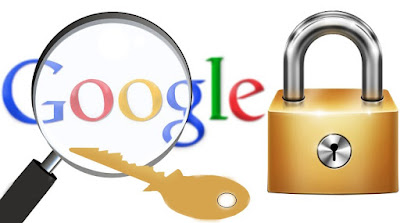Google Issues Duplicate Content Warning
 |
| Protect Yourself From Duplicate Content Issues |
Trailing Slash on Root/Hostname
Training Slash on Root/Hostname don't make a difference if there is a forward cut toward the finish of your space name or not, they both equivalent a similar thing. That implies you can coincidentally have the landing page connected all through your site as www.example.com/and www.example.com and Google won't consider it to be a copy content issue.
This is a decent elucidation since it implies you never again need to stress over that (non) issue.
This critical to get it. Document names with and without a forward slice can be viewed as copy. In this manner if your page can be come to by example.com/angle and example.com/angle/, you have a copy content issue. On the off chance hat the genuine URL is/angle/at that point your server ought to divert/fish to/angle/.
Distinctive Protocols DO Matter
Here is the place the copy content issue turn out to be genuine. John Mueller brings up that Google will see an indistinguishable page from a two distinct pages on the off chance that you compose a similar URL with an alternate convention.
For instance, https://www.example.com will be viewed as not quite the same as http://www.example.com. For whatever length of time that you have 301 sidetracks to deal with that, at that point Google may see that as an issue. What's more, it could be an issue.
How a Competitor Can Confuse Google
A few servers will at present serve a page as HTTPS, regardless of whether you don't have a security testament. Google will see that as a copy website page. All it takes is for a contender to start connecting to your webpage with https to get Google ordering a copy site page.
Also, a few servers may not serve a non-SSL site page at all through HTTPs if no sidetrack are set up to deal with that demand. Subsequently, if your non-SSL site doesn't have diverts set up to deal with demands for a HTTPS adaption, and your server's reaction is to convey a "site can't be achieved" mistake, a contender can make connects to the non-existent HTTPS variant, Google may see that as a different page, as per Google's John Mueller.
As per John Mueller's illustration: " Different conventions and hostnames do make a difference.."
At that point he utilizes this
example:http://www.example.com/isn't the same as
https://www.example.com/
John Mueller at that point outlined more cases of copy content:
This URL:https://www.example.com/
Isn't the same as this URL:https://example.com/
What's more, this:https://example.com/angle
Isn't the same as this:https://example.com/angle/
The majority of the above illustrations speak to ways a contender can connection to your site and make what Google will see as copy content. Will this copy content hurt your rankings? Likely not. Aside from site is down blunders, Google is generally quite great at making sense of that two pages are a similar at that point joining them. In any case, it's a decent practice to not befuddle the inquiry bots.
How to Protect Yourself from Duplicate Content Issues?
1. Standard TagDefine an accepted page for each page. This reveals to Google which rendition of your URL is the right one. While Google isn't committed to comply with the accepted, it will take it as an affirmation and a trace of which URL is the right one to appear in the indexed lists pages.https://support.google.com/website
admins/replay/139066?hl=en
2. Test how your server reacts to demands for secure and uncertain URLsYou may need to add 301 sidetrack to make up for copy URL or site is down mistakes.
3. Review your URLsCrawl you page with Screaming Frog (paid) or XENU Link Sleuth (free) and survey your URLs for any copies or page not discovered mistakes.
4. Examine 404 ErrorsCheck your server logs, activity investigation or Google Search Console and find the wellspring of any 404 page not discovered errors. 404 mistakes ought to dependably be researched.
John Muller's elucidation about what is and what isn't a copy page to google is critical. It's great to have official elucidation. Also, despite the fact that you may discover issues, I'm genuinely certain that much of the time Google will make sense of which page is the correct page, so there isn't a need to freeze. Be that as it may, SEO is actually around a large number of little subtle elements and this is only one of them.
Similarly articles about " Google Issues Duplicate Content Warning" may be useful.
0 Response to "Google Issues Duplicate Content Warning"
Post a Comment